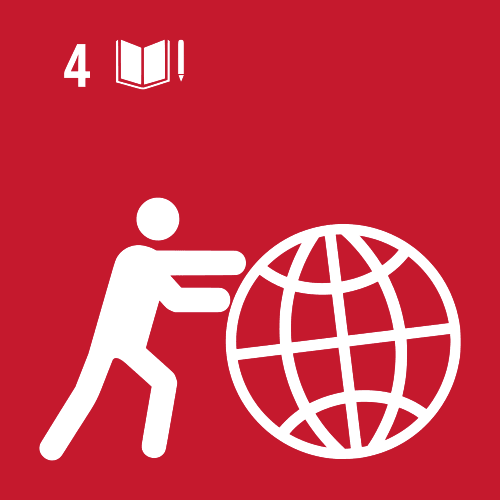Quality Education: Ensure inclusive and equitable quality education and promote lifelong learning opportunities for all
To understand the world around us, access to basic education is crucial. Through quality education, people acquire the ability to listen, critically reflect about reality, and make informed choices about their life. This goal also seeks to improve school facilities, increase the number of training and vocational opportunities, and increase the number of trained teachers available to provide a safe learning environment.
Education is essential to achieve many of the Sustainable Development Goals (SDGs). Quality education allows people to break the cycle of poverty; it helps to reduce inequalities and reaches gender equality; It enables people to lead a healthier and more sustainable life and it is essential to foster tolerance and peaceful societies.
The integration of SDG into vocational education helps people to develop knowledge, skills, values, and behaviours needed to address 21st-century challenges. In particular, this SDG is related to vocational education through target 4.3 (equal access to affordable technical, vocational, and higher education); target 4.4 (increase the number of people with relevant skills for financial success), and target 4.5 (eliminate all discrimination in education).
Schools/universities are essential to provide learning spaces for students to plan and implement their ideas to contribute to achieve SDGs and to integrate these issues into curricula and extra-curricular activities.









